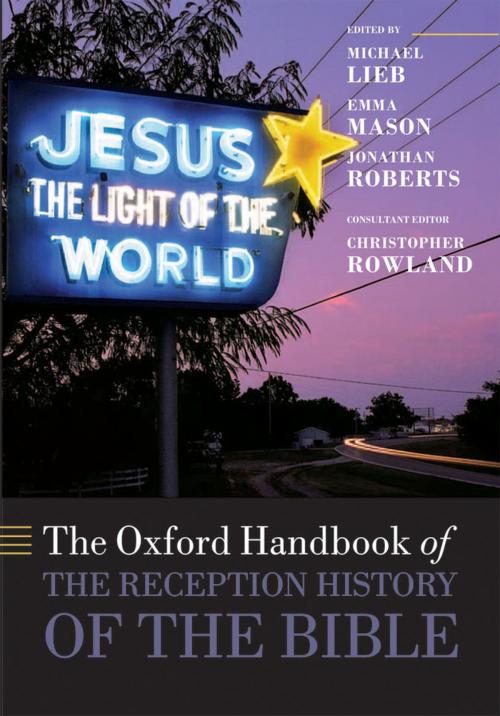The Oxford Handbook of the Reception History of the Bible
Nonfiction, Religion & Spirituality, Reference, History, Fiction & Literature, Literary Theory & Criticism| Author: | Christopher Rowland | ISBN: | 9780191649189 |
| Publisher: | OUP Oxford | Publication: | January 10, 2013 |
| Imprint: | OUP Oxford | Language: | English |
| Author: | Christopher Rowland |
| ISBN: | 9780191649189 |
| Publisher: | OUP Oxford |
| Publication: | January 10, 2013 |
| Imprint: | OUP Oxford |
| Language: | English |
In recent decades, reception history has become an increasingly important and controversial topic of discussion in biblical studies. Rather than attempting to recover the original meaning of biblical texts, reception history focuses on exploring the history of interpretation. In doing so it locates the dominant historical-critical scholarly paradigm within the history of interpretation, rather than over and above it. At the same time, the breadth of material and hermeneutical issues that reception history engages with questions any narrow understanding of the history of the Bible and its effects on faith communities. The challenge that reception history faces is to explore tradition without either reducing its meaning to what faith communities think is important, or merely offering anthologies of interesting historical interpretations. This major new handbook addresses these matters by presenting reception history as an enterprise (not a method) that questions and understands tradition afresh. The Oxford Handbook of the Reception History of the Bible consciously allows for the interplay of the traditional and the new through a two-part structure. Part I comprises a set of essays surveying the outline, form, and content of twelve key biblical books that have been influential in the history of interpretation. Part II offers a series of in-depth case studies of the interpretation of particular key biblical passages or books with due regard for the specificity of their social, cultural or aesthetic context. These case studies span two millennia of interpretation by readers with widely differing perspectives. Some are at the level of a group response (from Gnostic readings of Genesis, to Post-Holocaust Jewish interpretations of Job); others examine individual approaches to texts (such as Augustine and Pelagius on Romans, or Gandhi on the Sermon on the Mount). Several chapters examine historical moments, such as the 1860 debate over Genesis and evolution, while others look to wider themes such as non-violence or millenarianism. Further chapters study in detail the works of popular figures who have used the Bible to provide inspiration for their creativity, from Dante and Handel, to Bob Dylan and Dan Brown.
In recent decades, reception history has become an increasingly important and controversial topic of discussion in biblical studies. Rather than attempting to recover the original meaning of biblical texts, reception history focuses on exploring the history of interpretation. In doing so it locates the dominant historical-critical scholarly paradigm within the history of interpretation, rather than over and above it. At the same time, the breadth of material and hermeneutical issues that reception history engages with questions any narrow understanding of the history of the Bible and its effects on faith communities. The challenge that reception history faces is to explore tradition without either reducing its meaning to what faith communities think is important, or merely offering anthologies of interesting historical interpretations. This major new handbook addresses these matters by presenting reception history as an enterprise (not a method) that questions and understands tradition afresh. The Oxford Handbook of the Reception History of the Bible consciously allows for the interplay of the traditional and the new through a two-part structure. Part I comprises a set of essays surveying the outline, form, and content of twelve key biblical books that have been influential in the history of interpretation. Part II offers a series of in-depth case studies of the interpretation of particular key biblical passages or books with due regard for the specificity of their social, cultural or aesthetic context. These case studies span two millennia of interpretation by readers with widely differing perspectives. Some are at the level of a group response (from Gnostic readings of Genesis, to Post-Holocaust Jewish interpretations of Job); others examine individual approaches to texts (such as Augustine and Pelagius on Romans, or Gandhi on the Sermon on the Mount). Several chapters examine historical moments, such as the 1860 debate over Genesis and evolution, while others look to wider themes such as non-violence or millenarianism. Further chapters study in detail the works of popular figures who have used the Bible to provide inspiration for their creativity, from Dante and Handel, to Bob Dylan and Dan Brown.















